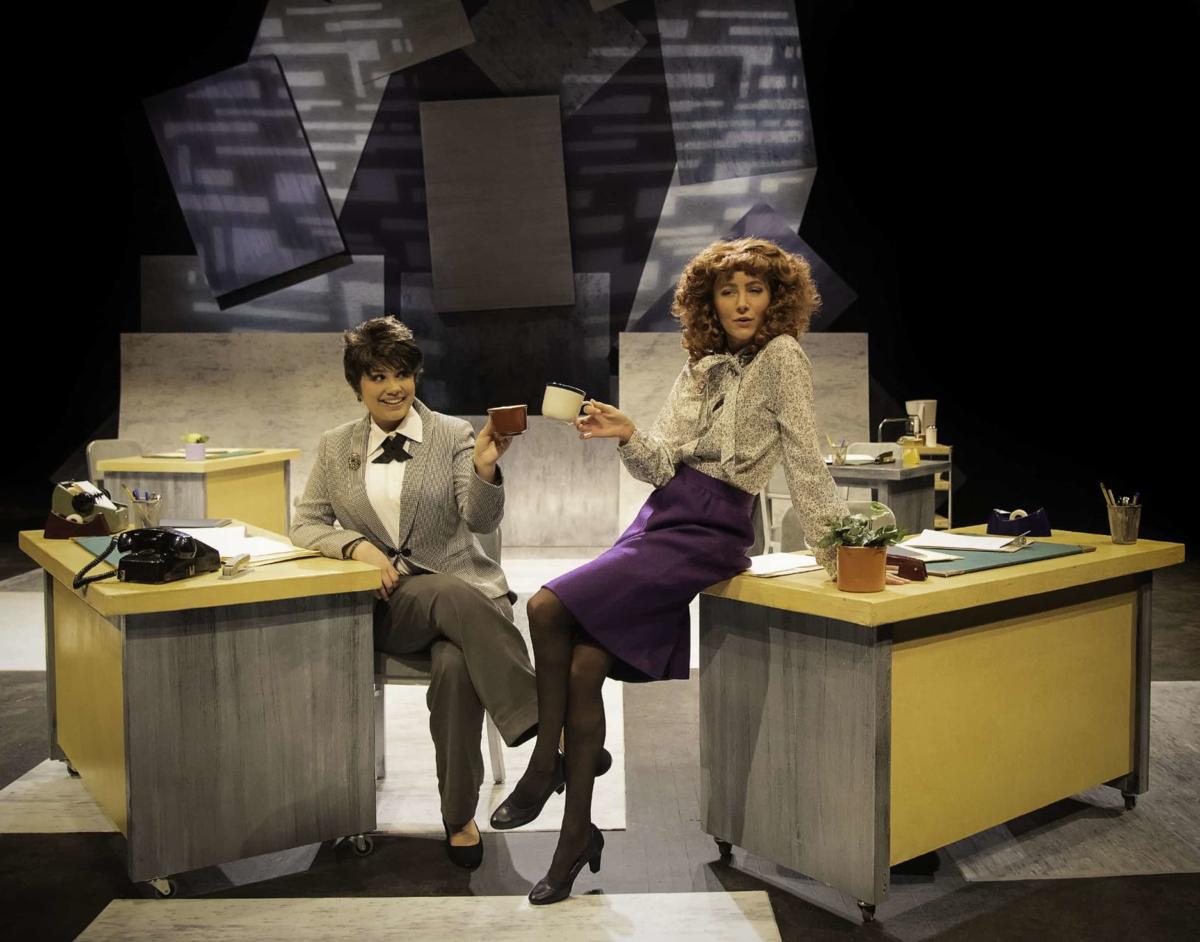“Top Girls” starts with an epic dinner party.
Marlene, the protagonist in the Caryl Churchill play, has summoned women from history, art and literature to join her in a celebration of her recent promotion at an employment agency. Arizona Repertory Theatre is currently staging an uneven production of the play.
Sitting at that table, downing wine and fighting to speak are a pope who got there because she had disguised herself as male, a famous world traveler, a warrior who led a charge into hell, a Japanese courtesan who became a Buddhist nun and the subservient wife from Chaucer’s “Canterbury Tales.”
They all fought the expectations put on women over the centuries to achieve success.
But there were sacrifices. And that hasn’t changed for the women in 1980s London, where the bulk of the play takes place.
This is a hard piece — there are really no likable characters in “Top Girls.”
Marlene is cold and steely and so focused on escaping the poverty of her youth that she fled, leaving behind a daughter, aging parents, and a sister to care for them all.
The women who work in the agency with her seem about as heartless. Those at the opening dinner party talk over each other, each anxious to speak but not to listen.
And it is clear that Churchill is saying what Madeleine Albright, Clinton-era secretary of state, often said: “There is a special place in hell for women who don’t help other women.”
The women in this play are out for themselves; pulling other women up the ladder with them doesn’t interest them.
The University of Arizona student cast struggled with accents in the dinner scene, and there seemed to be more acting than settling into the characters throughout the play.
Still, there were bright moments in this David Morden-directed production in which all actors have multiple roles, with the exception of a solid Rebecca Galcik, who plays Marlene.
Among them: Elana Richardson, who gave her pope a regal, often pompous, air, and was just as effective as an exasperated and impoverished Joyce, Marlene’s sister. Maggie McNeil didn’t have much to say as the bread-hoarding warrior in the first scene, but her body language made who she was clear. And she was particularly effective as Marlene’s abandoned child, Angie, who is angry and longs for a life that offers more prospects and less economic struggles.
But here’s what makes it so difficult to watch this play: Angie may be able to break out of the life she has, but she won’t get help from Marlene. Nor will any of the other women who come to her seeking jobs. She’s achieved success; no need to help anyone else get there.
It’s a dynamic Churchill was not happy about.
Nor should we be.





